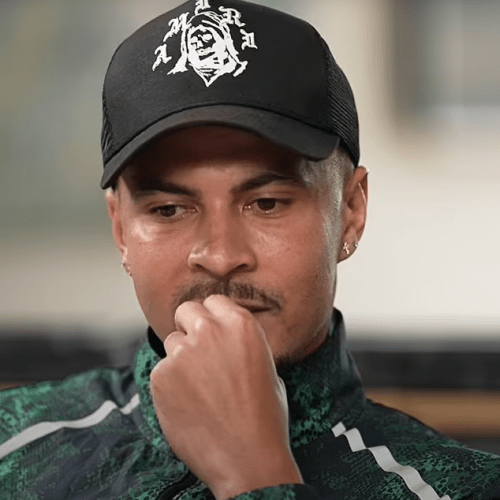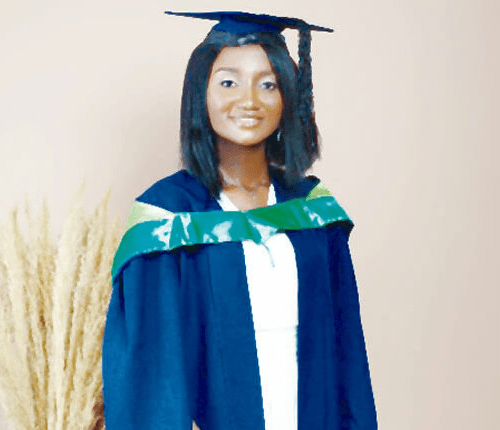Jumoke Oduwole is a senior lecturer at the Faculty of Law, University of Lagos. She served in President Buhari’s Administration under Vice President Yemi Osinbajo from 2015 to 2023, first as Senior Special Assistant to the President on Industry, Trade & Investment, where she was instrumental in the conceptualisation and formation of the Nigerian Office for Trade Negotiations (NOTN), and later as Special Adviser to the President on Ease of Doing Business.
Oduwole was on loan to the Federal Government of Nigeria from the Department of Jurisprudence and International Law, Faculty of Law, University of Lagos, Nigeria, where she has taught various subjects at undergraduate and postgraduate level ranging from International Economic Law, International Trade Law to mention a few.
Jumoke was appointed as the 2013-2015 Prince Claus Chair holder, a Visiting Professorship in Development and Equity in honour of the late Prince Claus of The Netherlands conferred by the Curatorium (then) chaired by H.M. Queen Maxima of the Netherlands.
She is a respected global thought leader in her field and is a highly sought-after speaker and contributor who has been invited to deliver keynote addresses or present at several reputable conferences and workshops locally and globally
How has your nurturing from childhood encouraged you to become who you are today?
My background is a simple one. Now that I know much more about life, I would go as far as to call it idyllic. I am the third of four children, I have two sisters and a brother. Growing up I was the nondescript middle child. Academics, Christianity and character-building were serious business in our household. My parents were hands on in their parenting style, particularly my mother. She paid very close attention and kept us safe. My father was democratic in his parenting and enabled us to dream big from an early age. He told us stories about all his travels, took us on various trips and experiences, introduced us to diverse music, plays, books, travel, fine dining, and always believed in my siblings and I. To sum it up, he once told me I could win the Nobel Prize. There was zero gender discrimination in our household. If anything, my brother had it tougher than the girls because my mother was determined that he would not be spoilt simply because he was an only boy.
This deep nurturing was in spite of them both being highly accomplished in their respective careers.
My father became a university professor under the age of 40 at College of Medicine, University of Lagos, he was a renowned surgeon at LUTH and foundation Vice Chancellor of Lagos State University (LASU). My mother spent her entire career as a member of the administrative cadre of University of Lagos, and rose to the very top, be the first female registrar in the history of Unilag.

I believe growing up on a university campus with other children from all parts of Nigeria whose parents were also academics or university administrators, and attending Queen’s College, a federal government college for girls, both strongly contributed to my life outlook, making me a detribalised and religiously tolerant Nigerian.
Did you always want to study law?
No. I happened into law quite by accident actually. I was a good enough student so I could have done a number of things, and at the time I wanted to be an Economist. Then, my mum had the idea that I should do a “professional” course and suggested accounting, which I didn’t like very much, so I quickly decided to study Law. To my mind, (and I was right), Law is the kind of degree choice that any parent or teacher is immediately happy with. It comes with immediate prestige and is also an extremely versatile course that prepares you for life in many ways. Little wonder that I ended up a socio-legal scholar, specialising in International Economic Law years later, I now see it as a great “shortcut” to my initial interests that avoided all the pain of econometrics and other grueling quantitative courses.
Being a lecturer, what was/is the most memorable day for you?
There are many, but one important day that comes to mind is the day I delivered my inaugural lecture as visiting professor for the Prince Claus Chair in Development and equity in The Hague, the Netherlands on May 20, 2014. An inaugural lecture is widely considered the pinnacle of an academic career, and to be privileged to deliver one on such a prestigious international stage at the age of 40 was memorable indeed.
My family, my parents, husband and sister attended the event from Nigeria. My father, ‘Folabi Olumide, a professor, the then Deputy Vice Chancellor of Unilag, Babajide Alo, a professor and my then co-lecturer and colleague from the Faculty of Law, Abiola Sanni SAN, also a professor, robbed in their gowns and walked proudly in academic procession with me and a long trail of several other distinguished professors from leading tertiary institutions across the Netherlands.
I delivered the lecture in front of the Queen of Netherlands, Nigeria’s then-ambassador to the Netherlands, Nimota Akanbi, the current Managing Director of Shell Petroleum Developing Company Nigeria, Osagie Okunbor, Judge Abdulqawi Yusuf, former President of the International Court of Justice, and several other dignitaries, top Dutch government officials, diplomats and heads of international organisations. The Lecture was titled ‘International Law and the Right to Development: A Pragmatic Approach for Africa’ and centered on the asymmetries of economic rights for African peoples and interrogated the responsibility of African governments to enable these rights, areas that remain close to my heart till today.
What is the most beautiful thing about being a lecturer and why Unilag?
Teaching, without a doubt. The opportunity to help shape bright young Nigerian minds and put them on the right path, with the confidence that they can achieve anything they set their minds to. It is particularly beautiful to watch them soar as they keep in touch or I bump into them years after they have graduated. I am extremely committed to their long-term success by giving them world-class knowledge and exposure about law and life right here in Lagos, Nigeria.
It was a natural choice, yet the position did not come too easily. I had to wait for about nine months before I secured a position as a lecturer II in 2004. Unilag is my Alma Mata. I grew up on that campus, I schooled there, where else would I want to serve? The school and community invested heavily in me and I consider it a privilege to teach in the University of first choice and the nation’s pride.
Having served Nigeria in the capacity you did for 7 years, what have you learnt? What memories are you leaving with?
It’s tough to condense memories of 7 years and 7 months into one or two paragraphs. Yet, at the same time, as I think about the learnings, they are profoundly simple, tested principles. Thankfully, I now have lovely memories of people and places all across Nigeria and beyond, with a permanent attachment to Abuja. Of course, it wasn’t all rosy. There were frustrations, and battles lost and won. ”The joy of victory and the agony of defeat” as they say in sports parlance. I guess you’ll have to wait for my book!
The job was mentally, physically and emotionally tasking. I was commuting between Lagos and Abuja the entire time. I had to build the team from scratch twice, with very little resources. On this assignment, I learnt the true meaning of being resilient, versatile, and dogged. I learnt that integrity is costly and that courage is essential to survival. Developing a thick skin is a given. I saw Nigeria at her best and at her worst, but I never gave up on her. I learnt that it is people (not government) who make up a nation and that private sector have as big a role to play as the government in the development of this country. Many people talk and talk, but only a very few actually walk the talk. I met people in government and from the private sector whom I have the utmost respect for because of their love for, and dedication to, Nigeria, but they were too too few.
Of all the things I learned during my time in public service, I am perhaps most grateful for my exposure to the political class and the machinery in Nigeria and how it links to governance. As a technocrat, I quickly realized that, irrespective of my qualifications, I was in my position at the behest of the political class, a world I knew little to nothing about before 2015.
Yet, it is politics that determines the quality of governance that we have and the level of progress that we can make as a people. I started networking and meeting political actors around 2017, attended conventions and rallies in 2018 and eventually joined a political party in 2021.
Surprisingly, no one ever asked me to join a party. In fact, it is not as easy as one might expect to join a political party in Nigeria. There are gatekeepers in every party. By now, I have learned quite a bit about Nigerian politics, yet I still feel like I have barely scratched the surface.
There is so much history and we all have to connect our own dots to maneuver forward progressively, without being derailed by sentiments. The single most important learning that I would like to share with Nigerians, particularly young Nigerian and the elite is that politics and governance go hand in hand.
Therefore, it is impossible to build the nation of our dreams from outside in. We all have to get involved and pay close attention to learning the ropes and delivering positive change for the greater good of the majority. By implication, progressive political engagement, involvement, and participation are what lead to good governance and nation-building. Indeed, the world over, it is the only thing that ever has.
You embraced the ‘Ease of Doing Business’ project deeply. When you look back, what are you grateful for? Did it serve its purpose? What is in place for continuity?
I am most grateful for the opportunity to have served Nigeria and Nigerians. It is a privilege to serve. The intervention was birthed in July 2016, and it was developed from a mere idea into a nationwide intervention within just a few years. Changing a system is really tough. In general, everyone complains yet people in government and in private sector do not like to change from their old ways. They believe others should change. It was tough negotiating the changes, implementing the reforms and enforcing compliance. Yes, we won some key reform successes and changed some things permanently, particularly with the aid of technology, but some reforms also unraveled and reverted to how they used to be before we came. Political cycles and Covid 19 also affected some reform efforts. It takes a huge amount of political capital to enforce compliance, and if you don’t have that, it becomes a Herculean feat.
Undoubtedly, a lot more could have been achieved in terms of improving the business climate, especially when you consider the amount of work that was put into the intervention over the last six years and the political will expended by the former Vice President. Yet, in spite of the hurdles and setbacks, I am grateful for the support and collaboration that our team got from all arms and levels of government, particularly the subnational governments, the National Assembly and the judiciary, and that we were jointly able to implement some practical reforms that positively impacted micro, small and medium-sized enterprises to start and grow, thereby creating jobs and by extension more prosperity.
Regarding the sustainability of the intervention, with continuity in mind, we built a team of resilient, talented and diligent young Nigerians drawn from both the civil service and private consultants. They are still intact and have continued to work under the auspices of the Office of the current Vice President. For instance, the $750 million SABER Program jointly designed by the PEBEC Secretariat and the World Bank team is still on track, and just last week the Federal Capital Territory launched its Small Claims Court, a landmark PEBEC reform with State judiciaries, with the technical support of the team.
Nigeria moved up an unprecedented 39 places in the World Bank’s flagship Doing Business Report over the last three years of the report’s publication (2017-2019), and Nigeria was twice recognised as a global top 10 reformers in that period, one of only two African countries to be listed in 2019. How does this feat make you feel?
The external validation and recognition were gratifying for us after all the hard work. The annual external World Bank target helped to rally the entire government together with a focus on one clear objective of the rankings. The results also validated our strategic aspiration that with systemic, concerted efforts it is possible to reform this business climate for Nigerian MSMEs to thrive. What we need is focus and discipline to stay the course of continued improvement. We always ended our presentations my saying “It’s a marathon not a sprint!”
In what ways are you involved in mentorship?
Over the years, I have taught and mentored many, many Nigerian youths one on one, through public speaking, facilitating leadership seminars, and engaging on social media. It actually keeps me very busy indeed. I find that particularly in the last couple of years, there is a hopelessness and a desperate thirst for something that can give then a reason to feel positively anchored to their country, so I am committed to doing even more. 10 years ago, I started a platform for my then law students called “No Limits” and brought role models from all works of life to speak to them, but it wasn’t a sustainable model. With the engagement and experience I have garnered over the course of my seven and a half years serving in government, I am currently working with a team of about young 15 volunteers and we are in the process of re-purposing that platform and co-designing it as a positive medium, a virtual safe space for discussing, learning and propagating nation building targeted at Nigerian youth everywhere. I want to inspire them, teach share knowledge and equip them practically for nation-building initiatives of their own.
To that young girl who desires to be successful, what do you have to say to her?
The world is your oyster. But merely wishing to be successful in your chosen area is not enough. With faith, excellence, diligence, and the 4-Cs (competence, character, capability, and courage) even the sky is not your limit. No Limits.























